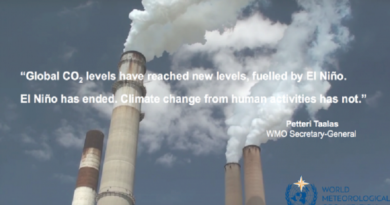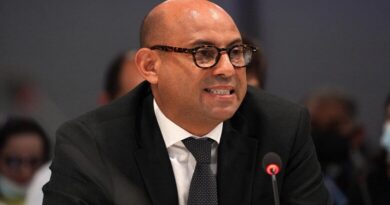Financial services firm to invest $200bn in sustainability by 2030
The multinational financial services company, Wells Fargo has pledged to invest USD 200 billion over the next decade in climate action and sustainability, 50 percent of which will go into renewable energy, clean technologies, sustainable transport, and green bonds.
Sustainable financing is a crucial component of achieving the objectives of the Paris Agreement, which aims to limit the rise in global average temperature to well below two degrees Celsius and as close as possible to 1.5 degrees compared to the pre-industrial level.
“Wells Fargo is committed to taking a leadership role in supporting the transition to a low-carbon economy and promoting environmental sustainability through our products and services, operations and culture, and philanthropy,” said CEO Tim Sloan in an announcement.
Wells Fargo has total assets of USD 1.9 trillion. The new commitment follows on from its 2012 goal of investing USD 30 billion in clean technologies by 2020, which it met within three years.
Wells Fargo has also committed to greater transparency on the carbon intensity of its portfolio, and it will regularly report on the impacts of its lending, in line with the recommendations of the Task Force on Climate-related Financial Disclosure.
“With this commitment, we are combining a strong financial goal with enhanced transparency and disclosure practices that we believe will lead to sector-wide progress on responsible, sustainable finance,” Sloan added.
Mindy Lubber, CEO of the non-profit organization Ceres, said the bank’s new commitments were “significant” and help contribute to the growing momentum within the financial sector to make more investments in clean energy.
“More and more investors and companies understand the economic imperative and strategic long-term benefits of keeping global temperature rise to well-below 2-degrees Celsius,” she added.
Climate Finance Globally on the Rise, but Trend Needs to Be Accelerated
The announcement by the company is a promising indication that decisive and enhanced climate action is picking up on the part of many stakeholders, including finance.
Already in 2014, the UNFCCC Standing Committee on Finance report that total global climate finance – which includes considerable investment by the private sector, as well as national and subnational governments worldwide – reached approximately USD 741 billion USD, an increase of about 15 percent from 2011 levels.
However, whilst the overall trend is promising, the current volume of finance being mobilized falls far short of what is needed to deliver the targets of the Paris Agreement.
In March, Spanish bank BBVA also announced plans to spend €100 billion by 2025 on fighting climate change. HSBC will also invest a similar amount in low-carbon projects.




